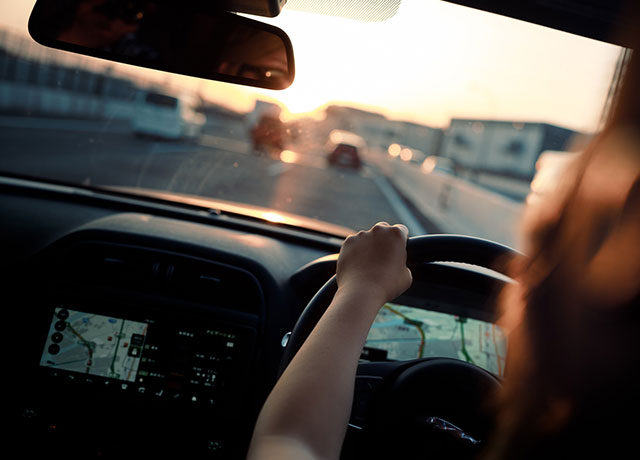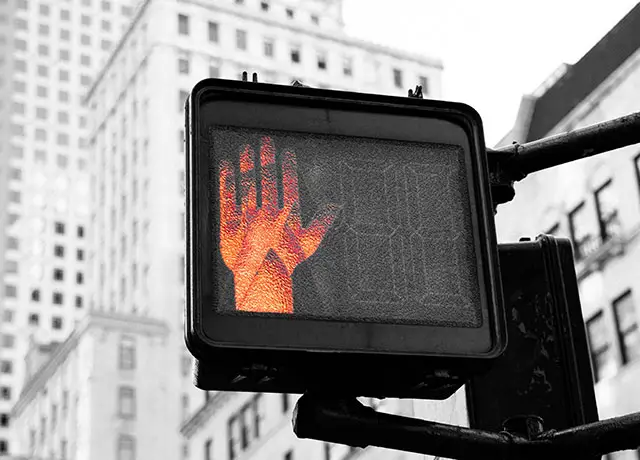Understanding What is Considered Rude in Germany such as being punctual or respecting the Ruhezeiten for example, is paramount to ensuring you’ll better enjoy your visit (or move) to Munich, to Bavaria, and to Germany.
In order NOT to appear like an ignorant tourist, or to be considered bad-mannered, it’s essential for any traveller to respect the culture and etiquette of the country they plan to visit. Germany is no exception and certainly, any prospective traveller to the country should aspire to find out more about German (and Bavarian) etiquette prior to arrival.
Some etiquette guidelines are true clichés and obvious social rules that you may have already come across (and maybe even joked about it), but there are also the unspoken rules in play as well.
Additionally, since many Bavarian Germans themselves will say “Bavaria is not Germany”, we’ve also included in our listing etiquette some specifics for Munich and Bavaria as well.
There are a number of Do’s and Don’ts to be considered here in Bavaria, and we hope you enjoy the read and our SHORT GUIDE as to What is Considered Rude in Germany (and What Isn’t also).
German Social Etiquette
German Punctuality: You Don’t need to be early, but please…don’t be late!
Being pünktlich (punctual) is one of the most important essences of living in Germany. Be it meeting with a friend or a formal appointment, especially at the KVR, or attending a doctor’s or business appointment, you are expected to be on time! It doesn’t matter if there was a Stau (traffic jam) or train Verspätung (delay), you should’ve organised yourself better!
Greeting Formalities: Do I Start the Conversation with “Du” or “Sie”?
When you start Learning German, one of the first things you will be taught is that there are formal and informal ways to greet and address people. You will learn very quickly the difference between “du” and “Sie” for the word “you”.
As a thumb of rule, if you are speaking to someone that is older than you and especially for the first time, you should address he/she with use the formal “Sie”. This is so in business environments and also if you are speaking to someone on the bus or just saying hi to your neighbour.
Once you know the person well, then you can ask politely if is ok to “duzen”, that is, address the person with “du”. Of course, this also goes for the plural form, Ihr and Ihnen.
In our post about Bavarian Phrases, we have mentioned that although “Servus” is frequently used amongst the locals, in formal cases, “Grüß dich” should be used.
The Ruhezeiten [Quiet Time]: What Exactly is It?
In Germany, there’s a law that forbids loud noises to be made at certain times. Loud noises include lawn mowing, drilling and even vacuum cleaning!
The actual exact term for this period of quiet is the “Ortsübliche Ruhezeiten” which translates pretty closely to being “the usual times to keep quiet in the place that you live in”.
The Ruhezeiten is, in many large cities these days, a lottle more relaxed than it has been in the past, however, don’t be surprised if you get a complaint from your neighbour if you happen to play loud music during or fire up your lawn mower during this period.
During the day, Mittagsruhe (day quite-time) is between 12-15:00; Nachtruhe (night quite-time) is from 22:00 till the next day 6 or 7 in the morning.
Sunday is considered a rest day as referenced from the sabbath in the Christian Bible, and many Germans to this day still adhere to its literal meaning. Even gardening is supposednly frowned upon on a Sunday despite it being a leisure pastime for many people.
You’ll also often see a notice at recycling bin stations about Munich indicating recommended times for recycling and even something that might seem as simple as recycling, is frowned upon on a Sunday as well, so be warned.
A German Prost: Look Into the Eyes When Raising a Glass!
Across different cultures, when it comes to drinking, there’s always a custom to be followed.
In the case of Germans, when rising the glass to cheers someone (a Prost), you should ALWAYS look into the person’s eye who you are clinking the glass with. If this fails, you should be ready for seven years of bad luck or even bad sex!
Yes, there are very serious consequence for incorrectly prosting so you’d definitely better get this cultural clink right thee first time!
BYO: Bring Your Own Booze!
When you are invited to a dinner or party, it’s a norm that the guests also bring their own drinks. Of course, you are welcome to bring extras to share, but don’t go empty-handed.
If it’s a grill party, sometimes the host will also inform their guests to bring their own meat.
For some cultures, this might be odd, so it’s a good idea to check with the host. If not, at least bring a bottle of wine or beer. No one will ever complain about this.
Birthday Wishes: Acceptable or Not?
In many cultures, wishing someone a happy birthday before the actual date is accepted. This is however a big no-no in Germany. If you do it, it’s considered rude!

Paying a Restaurant Bill: It’s OK to Pay Separately
After a delightful dinner/drink, in many countries, the awkward moment comes when the table is given a long bill. The bill is then passed around as each person tries to figure out how much to pay individually.
In Germany, it’s normal that the waiter/ess will come around asking “zusammen or getrennt bezahlen” (pay together or separate). If separate, he/she will actually go around the table and calculate the bill you should pay.
I find this particularly practical when eating in a big group with people you don’t know very well. This just eliminates any potential awkwardness.
Tipping in a Restaurant: Yes or no?
Now that you’ve figured out your bill, although the receipt may not indicate a service charge, it’s etiquette to pay a 10% tip. Of course, if you’ve enjoyed the service, you can always tip more.
Normally when the waiter/ess comes around to receive the payment, the customer replies with the total amount to be given with the added tip – this applies to paying with cash or card.

Recycling: You Must Sort Your Own Waste!
In general, in a housing estate, recycling bins are provided for paper and bio-wastes. For the rest, there are usually recycling stations in the neighbourhood.
In general, in a housing estate, recycling bins are provided for paper and bio-wastes. For the rest, there are usually recycling stations in the neighbourhood. But don’t do it on a Sunday whatever you do!
Pfand: The Glass and Bottle Deposit System!
To encourage the reduction of one-time drink containers to be used, the Pfand deposit system is used.
What we love about the Pfand system is that it’s also used in many festivals, carnivals and even in Beer Gardens. Instead of getting your beer or gluhwein in a plastic cup, it’s served in a decent glass/cup provided by the vendor. A reusable Pfand chip is given and when you return the glass/cup, you will get your Pfand back.
So make sure you keep your chip and remember where you’ve bought your drink!
It also applies when you buy drinks (eg. bottles of water, beer, soft drinks) in supermarkets. An automatic Pfand is added when you pay. You’ll receive the Pfand in a voucher when you return your bottles to the machines provided. You can return your container across different supermarkets even if you have purchased the product from another store.
Transportation Rules and Etiquette
Train, Bus, Tram & Subway Ticket validation
When taking public transport in Germany for the first time, you may realise at stations, there are almost no service counters and no entrance gates. That does not mean you should skip buying a ticket.
Although Germans run on the self-honest system, if you are caught with an invalid ticket, you will get a hefty 60Euro Schwarzekarte fine.
Another don’t do, is forget to validate your ticket! Double-check what’s written on your ticket. if you see the words “Karte entwerten”, it means you have to stamp it.
If you are using the Streifkarte (stripe ticket), make sure you stamp it correctly. It should only be stamped once per journey, at the correct strip according to the zone, and do not stamp overlapping the strips. It’s not unknown that the Ticketkontroller (ticket inspector) can also issue you a fine, even if is an unintentional mistake!
Find out a lot more about Getting Around Munich in our previous blog article here.
Wearing a Mask On Public Transport
Hopefully, this will change in time, but as we are still experiencing the COVID pandemic, it is absolutely crucial to wear a mask on public transportation. Best to be up to date with the regional public transportation requirement.
Parking Electric Scooters
As electric scooters become more a popular means of transportation, unfortunately, this has caused annoyance for many locals as many people simply decide to park them anywhere.
Sadly, it’s not unusual to see these scooters parked in the middle of sidewalks and even on bike lanes and although this problem is not entirely caused by tourists, it’s a good reminder for all that we should have the common courtesy of keeping paths clear.
Driving on An Autobahn
For many, it’s very exciting to drive on the Autobahn (Highway) in Germany for the first time.
Keep in mind although it’s exhilarating to drive with no Geschwindigkeitsbegrenzung (speed limit), in most parts of the highway, do be aware that you should only be driving on the right lane. The middle and left lane is only for overtaking.
Don’t be surprised if you see another driver cursing you by waving their hand in front of their face (this is the equivalent of giving the middle finger) or getting a ticket from the police.

Do’s and Don’ts Of Munich
Speak Bavarian [or at Least TRY]!
Although no one expects you to speak fluent Bavarian, it’s appreciated if you can greet or attempt a few basic sentences in the local language.
In one of our posts, we have gathered a list of fun and practical Bavarian Phrases. We definitely encourage you to learn a few, especially if you plan to go to the Oktoberfest!
To get you started with a typical Bavarian phrase, Servus is the casual hi or bye
Can You Bring Your Own Food to Biergarten?
Yes you can! Unbeknown to many tourists and new ex-pats in town, selling food in Biergarten was once banned. So people had to bring their own food to enjoy their Maß under the chestnut trees.
This tradition now no longer exists, but it does mean people are welcome to bring food of their own, as long as they purchase drinks.
So next time when you visit a Biergarten, don’t be shy to bring your picnic basket and even a pretty table cloth. Be aware though, that this only applies to a Biergarten and not to restaurants that have a garden.

Brezel [Not Pretzel] & Sammeln
Eating a Pretzel is probably on your food-to-try list and we highly recommend not only trying one from a bakery, but also the giant one’s that can be found in most Biergartens.
Very important though, you should pronounce the Brezel with a “B” and not a “P”. In Bavaria, it’s a Brezel and not a Pretzel.
Also, when you order a bread roll from the bakery, whilst in other parts of Germany is called Brötchen (small bread), it’s Sammeln here in Bavaria.
Do Leave Empty Glass Bottles Next to the Bin
You may have spotted empty bottles idling around trash bins in parks and sometimes, on walkways. My first impression was, why can’t people throw rubbish correctly into the bin.
It was later explained to me that this is done on purpose.
As explained earlier, the pfand system is common in Bavaria. The bottles are left close to the bins, so the homeless and the needy can collect them more easily.
This gesture is perhaps also common in other parts of Germany. If you’ve seen this outside Munich, it would be interesting for us to know.
Do Visit a Museum on a Sunday if You Can
This is not so much an etiquette do or don’t but is rather a DO suggestion.
There’s a special Angebot (special deal) in Munich on Sundays. There are a number of museums you can visit with only a 1 Euro entrance fee. This includes the famous Egyptian museum as well as a plethora of other art and culture musuems in the city.
Here, you can find out more about which museums you can visit.
What Is Considered Rude in Germany | Final Thoughts
We hope you’ve discovered something new within this article that you didn’t know about the German way of living and its common social rules. Some of the do’s and don’ts are common sense, whilst many are a surprise to us!
There are oviously many more things to keep on mind but if you grasp these basics you’re off to a great start in understanding German Etiquette. And should you find yourself being corrected for any sort of faux pas, don’t worry, this is totally normal on German Culture – it doesn’t mean you won’t be welcomed. Unless you don’t learn from that faux pas of course!
So now that you know all about What is Considered Rude in Germany perhaps you might also be curious about what locals enjoy. Well you’re in the right place as we have prepared a post about some annual Munich Events for your consideration.
Thanks for dropping by and we hope you enjoyed the read!

